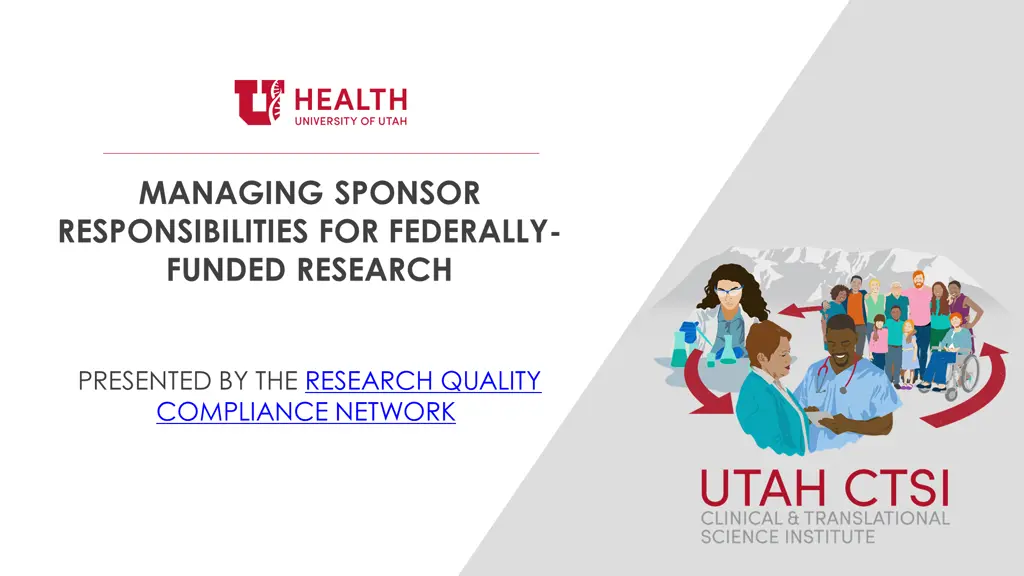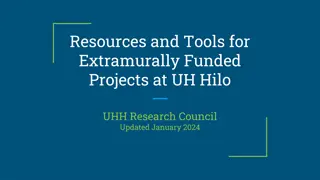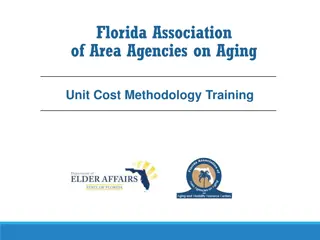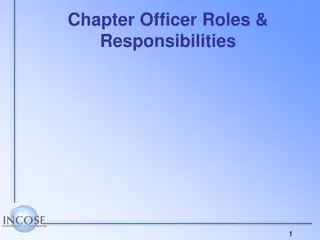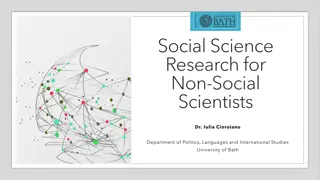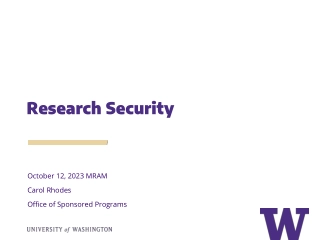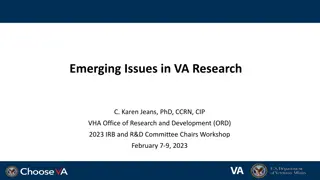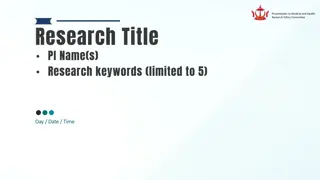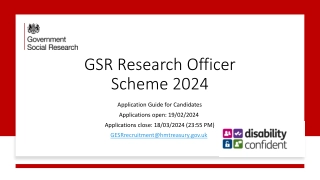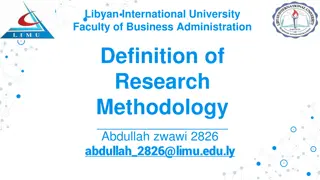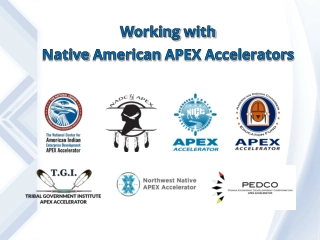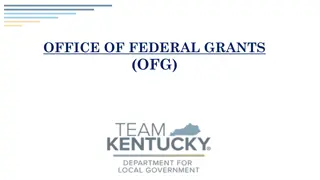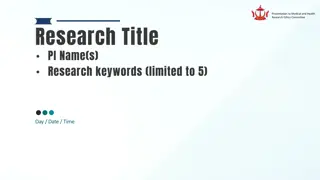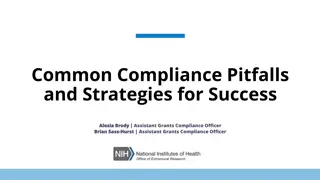Managing Sponsor Responsibilities for Federally-Funded Research
The roles and responsibilities of sponsors in federally-funded research. Presented by the Research Quality Compliance Network.
Download Presentation
Please find below an Image/Link to download the presentation.
The content on the website is provided AS IS for your information and personal use only. It may not be sold, licensed, or shared on other websites without obtaining consent from the author. Download presentation by click this link. If you encounter any issues during the download, it is possible that the publisher has removed the file from their server.
- sponsor responsibilities
- federally-funded research
- research quality compliance
- funding mechanisms
- GCP requirements
- regulatory requirements
Presentation Transcript
MANAGING SPONSOR RESPONSIBILITIES FOR FEDERALLY- FUNDED RESEARCH PRESENTED BY THE RESEARCH QUALITY COMPLIANCE NETWORK
PRESENTERS Ginger Bair, CCRP QA/QC Coordinator, Office of Quality Compliance and CTSI Josh Fessel, MD, PhD Senior Clinical Advisor, Division of Clinical Innovation, NCATS and NIH Panel: Todd Bjorklund, MPC, BA Office of Sponsored Projects (OSP) Dholani Perera, BS, CCRP Clinical Research Support Office (CRSO) Dixie Thompson, BSN, RN Clinical Research Unit (CRU)
LEARNING OBJECTIVES / AGENDA 1. Identify common funding mechanisms for research studies / trials Ginger 2. Identify the roles necessary to complete a research study / trial and the definition of a Sponsor-investigator Ginger 3. Explain the Good Clinical Practice (GCP) requirements of the Sponsor Ginger 4. Discuss who is responsible to meet the GCP and regulatory requirements of the Sponsor in Investigator-initiated trials (IITs) and Federally Funded research (FFr) Josh 5. Explain the offices and resources at the UofU that support IIT and FFr PIs meet the Sponsor responsibilities Panel
RESEARCH FUNDING MECHANISMS 1. Industry or Pharma pharmaceutical companies such as Johnson & Johnson, Pfizer, Novartis, AstraZeneca, etc. 1. These are managed by a contract between the company and the Institution and a protocol 2. Federal NIH, NSF, DOD, DOE 1. These are managed by a grant and notice of award between the federal agency and the institution. 2. These can fund an individual PI (such as an ROI), an office or institute at a University (such as the CTSI), or they can be a cooperative agreement where the same federally funded trial is run at several institutions.
RESEARCH FUNDING MECHANISMS (CONT.) 3. Institutional these are usually called IITs, investigator-initiated trials and the primary funding is internal from the institution. A pharmaceutical company may provide support such as the drug, device, or supplies, but they are not the primary funder. 4. Private these can be private non-profit organizations such as the American Heart Association, the Bill & Melinda Gates Foundation, etc
ROLES IN CLINICAL RESEARCH / TRIALS Sponsor: the person or entity that takes responsibility for the initiation, management, and/or financing of a clinical trial. Investigator: the person responsible for conducting the research at a specific location(s). Clinical Research Organization (CRO): a company hired by the sponsor and then delegated by the sponsor with certain tasks to perform. These tasks are the sponsor s responsibility to perform and the sponsor is usually held accountable if these tasks are not performed in accordance with policies and regulations Funder: a person or entity separate from the Investigator who provides funds or resources (sometimes even the investigational drug or device) for the research. This role is also usually held by the Sponsor but in the case of Sponsor-Investigator research, they are separate.
WHAT IS A SPONSOR-INVESTIGATOR The University of Utah IRB s definition of a sponsor-investigator is An individual who both initiates and conducts - alone or with others - a clinical investigation. Corporations, agencies, or other institutions do not qualify as Sponsor-Investigators. The term, as defined in FDA regulations, does not include any entity other than an individual. As the name suggests, a sponsor-investigator assumes the responsibilities of, and must comply with, Federal regulations applicable to both a sponsor and an investigator. Sponsor responsibilities can be found in 21CFR312.50 (812 for devices) and section five of ICH GCP E6(R2).
GCP REQUIREMENTS OF THE SPONSOR https://www.fda.gov/media/93884/download
GCP: SPONSOR-INVESTIGATOR University institutions have created excellent resources and the infrastructure for Principal Investigators (PIs) and research study teams to receive training in Good Clinical Practice (GCP). As would be expected, this training focuses on section four of the GCP Guidelines, the role of the Investigator. However, when a PI is conducting Sponsor-Investigator research (aka an Investigator-Initiated trial (IIT)), the PI also needs to be aware of and understand the regulatory requirements for a Sponsor. To a degree, this is also true for Federally funded research even though these types of studies/trials are not technically Sponsor-Investigator research.
GCP EXAMPLES SECTION 5 SPONSOR 1. Ensure quality management through the life of the study Protocol development Risk management 2. Ensure monitoring systems are in place 3. Appoint appropriately qualified personnel 4. Ensure protocol compliance 5. Regulatory approval and reporting requirements 6. Oversee regulation of the investigational product (IP) 7. Adequately train all study personnel, participants, and document their roles
REFERENCES https://database.ich.org/sites/default/files/E6_R2_Addendum.pdf https://database.ich.org/sites/default/files/E6_R2_Step_4_Presentation_0.pdf https://www.fda.gov/media/93884/download https://www.fda.gov/about-fda/center-drug-evaluation-and-research-cder/good- clinical-practice https://www.fda.gov/science-research/clinical-trials-and-human-subject- protection/regulations-good-clinical- practice-and-clinical-trials https://www.fda.gov/industry/orphan-products-clinical-trials-grants-program/sponsor- investigator-roles-and- responsibilities-clinical-investigations-drug-and-biological- orphan https://acrpnet.org/2019/04/25/revisiting-the-form-fda-1572/ https://about.citiprogram.org/course/a-beginners-guide-to-being-a-sponsor- investigator/
VA Salt Lake City Health Care System
Key Points Most of the commonly used NIH funding instruments (e.g., grants, cooperative agreements) are agreements between NIH and the institution Grants don t go to PIs. Grants go to the institution. Official communications happen between NCATS Grants Management personnel and the institution s Signing Official/AOR. Many activities will be delegated E.g., It almost certainly won t be the AOR/Signing Official who enters required info into ClinicalTrials.gov. It will almost certainly be the PI or someone on the study team. Delegated activities =/= delegated responsibilities E.g., If there is required information or a required activity that is out of compliance and is tied to federal funds in a grant, it will be the grantee who is on the hook for fixing that. Remember, it s the institution that s the grantee, not the PI.
How I Would Think About a Pilot Study That Fits NIH Definition of a Clinical Trial NIH/NCATS are the Funder. NIH and NCATS are explicitly not the Sponsor. That also means that NIH/NCATS are not in the role of CRO, as CRO is an entity that carries out study-related activities for which the Sponsor ultimately takes responsibility*. The grantee institution is the Sponsor. When in the role of Funder, NIH/NCATS has an agreement with the grantee institution regarding how those funds will be used. If the funds are to be used to support an NIH-defined clinical trial, it s the institution s responsibility to ensure that trial happens. If something is out of compliance with NIH regs, it s the institution that will be contacted (via the Signing Official/AOR). The Hub is mostly closely related to the CRO. The Hub represents the portion of the grantee institution that is tasked with carrying out the management of the funds that support a pilot study, as well as the activities involved in that pilot study. The PI is the Investigator. The PI is the knowledgeable agent tasked with carrying out the study-related activities on behalf of the Hub. Yes, the PI has initiated the pilot study in the sense that they ve conceived of it, developed the protocol, etc. But the study won t happen without the support of the Hub, and the Hub won t act without the backing of the grantee institution, and the grantee institution is overseeing the operation. *From Section 5.2.1 of https://www.fda.gov/media/93884/download A sponsor may transfer any or all of the sponsor's trial-related duties and functions to a CRO, but the ultimate responsibility for the quality and integrity of the trial data always resides with the sponsor. The CRO should implement quality assurance and quality control.
Why I Separate Sponsor and Investigator In The Prior Example The underlying agreement that supports the study is an agreement between the NIH and the institution, not between the NIH and the PI. Let s imagine a case where a pilot study changes PIs midway through. Let s further imagine that something was amiss with how the first PI did things, but that it wasn t picked up until the second PI was in charge of the ongoing pilot study. And let s imagine that the first PI was abducted by aliens (that s what caused the change of PI), so they re not around to provide any information or to take responsibility. Who is now responsible for anything that needs doing or fixing? It would be the grantee institution, which in my mind puts them in the role of Sponsor.
Practically Speaking In the previous example, the institution is almost certainly going to rely on the PI to do the fixing. NIH/NCATS doesn t much care *who* at the institution actually does the fixing in most cases, as long as stuff is compliant in a timely fashion and within rules and regs. E.g., NIH/NCATS would care if you had someone dealing with human subjects data who had not completed necessary human subjects training. Functionally, many of the responsibilities and tasks from various categories (Sponsor, Investigator, even CRO) often fall to the study PI and study team. As an example, think about the RPPR. It falls to the PIs to complete many of the portions of the RPPR, but the progress report can only actually be submitted by the grantee institution.
Clinical Research Support Office (CRSO) IND/IDE Support What can the IND/IDE specialist do for you? Coordinate pre-IND/IDE consultation meetings with the FDA Assist with all FDA submissions for IND and IDE studies- includes initial submission, amendments, annual progress reports, and safety reporting Serve as the primary point of contact with the FDA Maintain master IND and IDE files Assist with monitoring visits and audits Please visit https://ctsi.utah.edu/crso/ind-ide for additional information and services provided Requesting Services Email jonna.lee.davis@hsc.utah.edu or CRSO.FDAsupport@hsc.utah.edu
Clinical Research Support Office (CRSO) Quality Assurance Team The sponsor is responsible for ensuring that a study is adequately monitored based on considerations such as the objective, purpose, design, complexity, blinding, size, and endpoints of the trial The sponsor should develop a monitoring plan that is tailored to the specific human subject protection and data integrity risks of the trial
Clinical Research Support Office (CRSO) Quality Assurance Team Current Services Sponsor-Investigators holding an IND/IDE: Pre-IRB IND/IDE audit Routine risk-based monitoring for the duration of the study All Investigators: FDA audit support Non-FDA audit support (e.g., European Medical Agency (EMA), sponsor GCP audit, etc.)* Additional Services*: Protocol review and development, Protocol risk assessment Monitoring plan review and development Case Report Form (CRF) review and development Deviation analysis and reporting guidance Corrective and Preventative Action (CAPA) consultation Source Data Review and Verification (SDV) Staff training re: any of the services provided or monitoring components *Non-FDA Audit Support and Additional Services are provided on a case-by-case basis.
Clinical Research Support Office (CRSO) Quality Assurance Team What do we review when we monitor a study? Regulatory Essential Documents Consent documents and the consent process Eligibility Criteria Participant source documents Investigational Product (IP) Accountability Primary endpoint and critical data source review and verification Safety and deviation assessment and reporting Suspected Unexpected Serious Adverse Reactions (SUSARs) Other items as needed depending on the complexity of the trial
Clinical Research Support Office (CRSO) Quality Assurance Team Requesting Services ProTracks: The Clinical and Translational Science Institute (CTSI) REDCap Intake form Can be accessed at the top of the CRSO webpage, here: https://ctsi.utah.edu/crso E-mail to crsoqa@hsc.utah.edu
